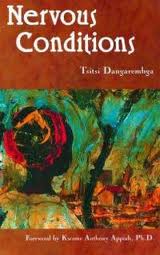We might be uninteresting – a vanishing race – but the final implosion will carry the world along. —-Selali
Last week, I made an outrageous Brittle Post in which I spoke rather disparagingly of the novel. I scoffed at it, laughed at it, and called its readers a vanishing race. Here is the piece: Ranting of a Tweeting Twat: Silly Habits of the Novel. Selali read the piece and posted a reply, an insightful comment starting with the phrase, “Not fair Ainehi.” A much longer reflection on the novel was inspired by our little exchange , and Selali has allowed me to post it here. Enjoy!
(A Response, an exhortation)
by Selali
Novels.
Fewer human inventions afford more freedoms and opportunities than a well crafted story. When a  tale of transcendent proportions is molded by the solidity of ink and paper it is essentially bestowed wings with which to travel and liberate other lost and wandering spirits.
tale of transcendent proportions is molded by the solidity of ink and paper it is essentially bestowed wings with which to travel and liberate other lost and wandering spirits.
For those who care enough to look, enumerable treasures lie fossilized in pages of novels just waiting to be claimed. The more obvious aims of novels like information/knowledge, entertainment, record-keeping, etc are often focused on while subtle gems are left undiscovered by the blasé reader. One of my favourite jewels lies in the boundless opportunity that exists for self-discovery and –affirmation within a novel. Society is very defragmented in recent times and certain experiences can only be safely (and most poignantly) shared within the endurance of a novel.
How many who have searched the pages of Hurston’s, Their Eyes Were Watching God did not find some respite for their pain by following the heroine’s struggle. You see, by permitting yourself to vicariously journey with the characters through their lives, you are very often inadvertently inspired of how to deal the mix of cards in your own hands.
When I read, Dangarembga’s Nervous Conditions I found a relief, a confirmation of my sanity (hmm…or perhaps my insanity cloaked itself more expertly). I had always contemplated the absurdity of man-made imaginary lines that keep one people isolated from another on our continent. Upon reading the last words of that book, my thoughts coalesced sweetly. How could one continue to doubt the shared humanity of African people when somewhere Eastwards, another’s mind ebbed and flowed uninhibitedly in the same waves as your own.
If the novel had to be a teacher then it must be the most valuable of them all. And I shall show you why. Where a factbook would demand your belief, insisting upon your blind acceptance of its claims, a novel does as opposite of this as is possible. The different approaches of the two are distinctly apparent for anyone who would but look. Here is how the novel leans instead: it presents to you a blankly outlined canvas with which you may acquiesce to colour into a well defined picture. In the process of creating this multi-shaded mural, with a coaxing nudge, the novel compels only your honest reaction and in so doing gradually compels a congealing of your beliefs. The novel holds up a mirror, and you, holding both the chalk and pen are free to learn about yourself.
In Armah’s The Healers you are transported to the ancient times of the great Asante kingdom. You are right there in the court when the Akan Royal families carve up and skewer their birth rite and hand it over, Kente-wrapped and bleeding, to the whiteman in return for a measly 10 pounds. Yes 1-2–10! Your spirit rails at the unfairness of it, how easy it is for dry gin to make fools of men. Surely kings should be immune. But then, you come to understand how a people are never destroyed unless first from within.
Oh, could you dare to read Ngugi’s Matigari or Baingana’s Tropical Fish without introspective inspiration?
Sadly, there are some who would use the bountiful fruits present in the art of novel writing for nefarious activities. Beware the grandiosity of some supposedly titled/award-wining authors who attempt to squeeze their cursed view of the world into the minds of unsuspecting readers.
Avid reading is slowly vanishing. It repels me, the thought of a world without the pouring out of one reaching soul towards another within the pages of a novel, or the absence of minds willing to commune on paper in the blissful cognition of shared existence. Too much would be lost, even more worrying is the awareness that too much would be hidden.
How else could the foretelling in Orwell’s 1984 be prophetic?








COMMENTS -
Reader Interactions